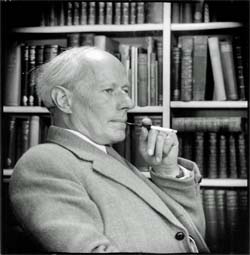A Quote by Ludwig von Mises
Professor von Mises has a splendid analytical mind and an admirable passion for liberty; but as a student of human nature he is worse than null and as a debater he is of Hyde Park standard.
Related Quotes
I spent my junior year in Switzerland. On the way back home, I spent some time in England, and I remember going to Hyde Park Corner. And there was a Roman Catholic priest in his collar, standing on a soapbox, preaching the Catholic faith and being heckled by a group. And I thought, 'My goodness.' I thought that was admirable.
The Bully has a Jekyll and Hyde nature - is vile, vicious and vindictive in private, but innocent and charming in front of witnesses; no-one can (or wants to) believe this individual has a vindictive nature - only the current target of the serial bully's aggression sees both sides; whilst the Jekyll side is described as "charming" and convincing enough to deceive personnel, management and a tribunal, the Hyde side is frequently described as "evil"; Hyde is the real person, Jekyll is an act.
The only thing that one really knows about human nature is that it changes. Change is the one quality we can predicate of it. The systems that fail are those that rely on the permanency of human nature, and not on its growth and development. The error of Louis XIV was that he thought human nature would always be the same. The result of his error was the French Revolution. It was an admirable result.
Of course, there are dangers in religious freedom and freedom of opinion. But to deny these rights is worse than dangerous, it is absolutely fatal to liberty. The external threat to liberty should not drive us into suppressing liberty at home. Those who want the government to regulate matters of the mind and spirit are like men who are so afraid of being murdered that they commit suicide to avoid assassination.
[Coining phrase "null hypothesis"] In relation to any experiment we may speak of this hypothesis as the "null hypothesis," and it should be noted that the null hypothesis is never proved or established, but is possibly disproved, in the course of experimentation. Every experiment may be said to exist only in order to give the facts a chance of disproving the null hypothesis.
I had to learn that there is more to the human being than material comfort, more than success, more even than national spirit or patriotism. That in any being worthy of being human there is also a demand for justice, for liberty, and that justice needs the evidence of all our lives, liberty is one and indivisible and collective, and no one can talk of justice solely for expediency's sake, nor of liberty while human beings, anywhere else on earth, are still in bondage.



































